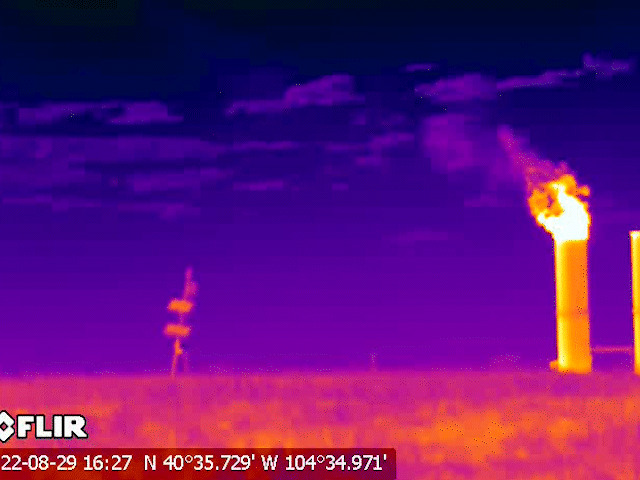First things first, extreme weather and toxic air pollution are impacting communities right now and it will not be stopped until the whole world stops expanding and manages the decline of fossil fuels. In the meantime, we must do everything we can to cut pollution from existing oil and gas facilities. This includes calling out and ground truthing “false solutions” designed to preserve record industry profits while perpetuating harm to communities and climate.
In April of this year, Earthworks and Oil Change International did just that (read the report here): we called out “gas certification” as untested, inadequate and, at worst, potentially intentionally deceptive.
Two weeks ago, the climate movement scored a major victory on that front when Project Canary, one of the leading gas certification companies and the target of our Certified Disaster report, announced it would be parting ways with its founder and CEO Chris Romer and shifting the company strategy away from certification.
Why it’s Significant:

Our Certified Disaster report put Project Canary’s claims of “altering the course of climate change” under the microscope. The 60 plus page report found major issues, the most startling of which was that their pollution monitors weren’t actually catching pollution. According to Bloomberg, it was these findings, in part, that put Project Canary under pressure for change.
The changes that Project Canary announced are monumental shifts. Chris Romer has been an outspoken and often controversial figurehead since he founded the company in 2019. His public persona and charisma are deeply woven into the Project Canary brand and are evident in the bold marketing campaigns that likely overstated the company’s capabilities at the time.
The most significant change though is Project Canary’s decision to shift away from certification. Up until that announcement, the company had centered its identity around its Trustwell™ certification platform which it acquired when it merged with Independent Energy Standards in 2020. The acquisition allowed Canary to self-brand as the only certification platform to combine “real-time, on-site monitoring with trusted, independent verification and analysis.”
These shifts happened in part because of our Certified Disaster report which uncovered concerning issues including:
- The company’s self manufactured monitors were consistently allowing pollution events to go unnoticed giving the false impression of emissions reductions.
- Conflicts of interests with private equity capital that had stake in both Project Canary and its clients
- Marketing and advertising that made unsubstantiated claims about the capabilities of the company’s offerings.
It is important to note that these changes do not address most of the concerns we highlight in our report – most importantly, the company still has not put its monitoring technology through transparent and independent testing. But it is a victory for exposing “gas certification” as highly problematic and in need of severe scrutiny by government regulators.
What’s Next
Industry has made bold claims to be doing better at reducing pollutants–oftentimes with governments complicit in endorsing questionable practices. This victory emphasizes just how important ground truthing those claims can be – the industry will go to extraordinary lengths to avoid being held accountable to their climate commitments and continue to sell methane gas as a false climate solution. Because of this, the climate movement must continue to scrutinize monitoring schemes, like Project Canary, which aim to reward companies or governments for “progress” on climate. The only true climate solutions focus on reducing the production of fossil fuels.
Your Support Makes Our Work Possible
Earthworks helps families on the front lines of mining, drilling, and fracking. We use sound science to expose health, environmental, economic, social, and cultural impacts of mining and energy extraction. To support our efforts, please consider a tax-deductible donation today that will go toward our work reforming government policies, improving corporate practices, influencing investment decisions, and encouraging responsible materials sourcing and consumption.
